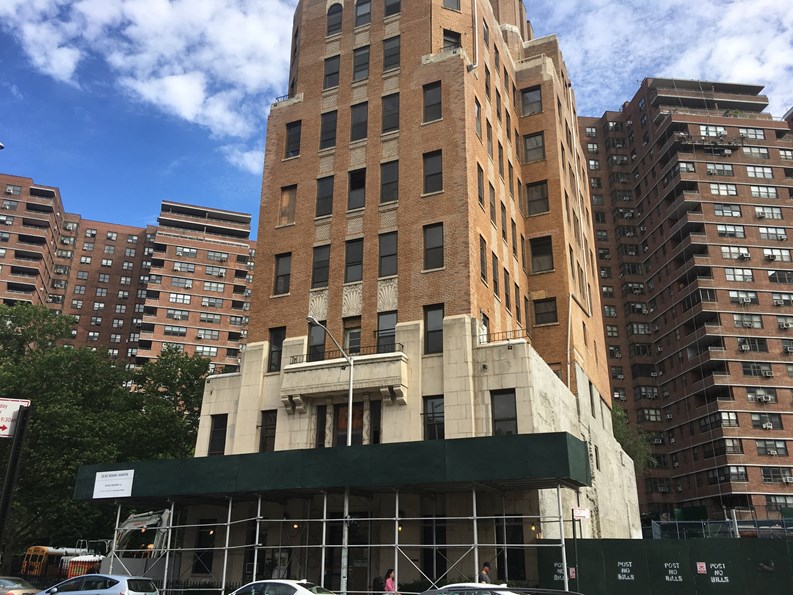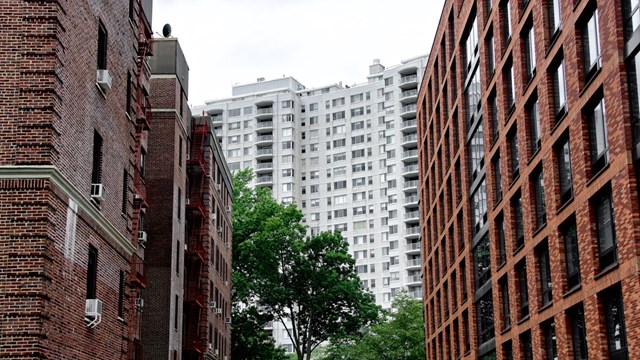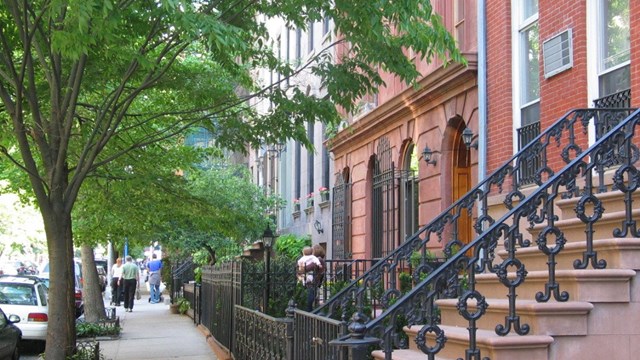Plans for a development company to buy the air rights from a Lower East Side co-op so it can build two large condo towers were recently dealt a serious blow.
Crain's New York Business reported that the Seward Park Cooperative rejected a $54 million deal from developer Ascend Group, after the co-op board fell short in getting the required 2/3 majority votes from the shareholders necessary for the sale.
Ascend Group purchased the former Bialystoker Nursing Home at 228 East Broadway in 2016 for almost $50 million. The plan was to build two condo towers – one reaching 22 stories, and the other 33 stories -- on either side of the Bialystoker building, according to Curbed. The plan hinged on Ascend's being allowed to purchase 162,000 square feet of air rights.
With this setback, Ascend will instead proceed to construct two condo towers at a smaller scale of 17 and 20 stories each, reported The Real Deal.
The Seward Park Co-op board had favored the deal, since the money from the air rights sale would have paid for major renovations to the building, including new elevators and balcony repairs. The transaction would have also kept maintenance fees from going up for the building's residents.
Following the vote, the board released a statement, quoted in Crain's: "Although a majority voted in favor of selling air rights, the supermajority threshold required by our bylaws was not reached."
Wayne Heicklen of Ascend Group expressed his surprise and disappointment over the outcome. “We thought that the shareholders would appreciate the fact that they are basically selling us something they otherwise can’t use or sell to anybody else,” he reportedly said, “and that this was kind of a one time opportunity to be paid $54 million.”
Adam Varsano, a Seward Park Co-op resident who backed the sale, told The Real Deal that some of his neighbors opposed it for a variety of personal interests, ranging from board criticism of renovation in the hallways, to the management's company inability to bring in an exterminator.
Another resident, Mark Aaron Polger, went on Twitter to say he did not vote for the sale. He claimed he was “harassed by daily propaganda delivered to my doorstep,” which made him irritated and angry.
Some also opposed the transaction because of overdevelopment concerns. "I’d like to think this would send a signal to the general community in favor of sensible, incremental development,” resident Bill Ferns said, quoted by The New York Times. “We don’t want the character of who can live in this neighborhood to change radically.”
The Seward Park Co-op consists of four buildings, containing 1,728 units.
David Chiu is an associate editor at The Cooperator.







3 Comments
Leave a Comment